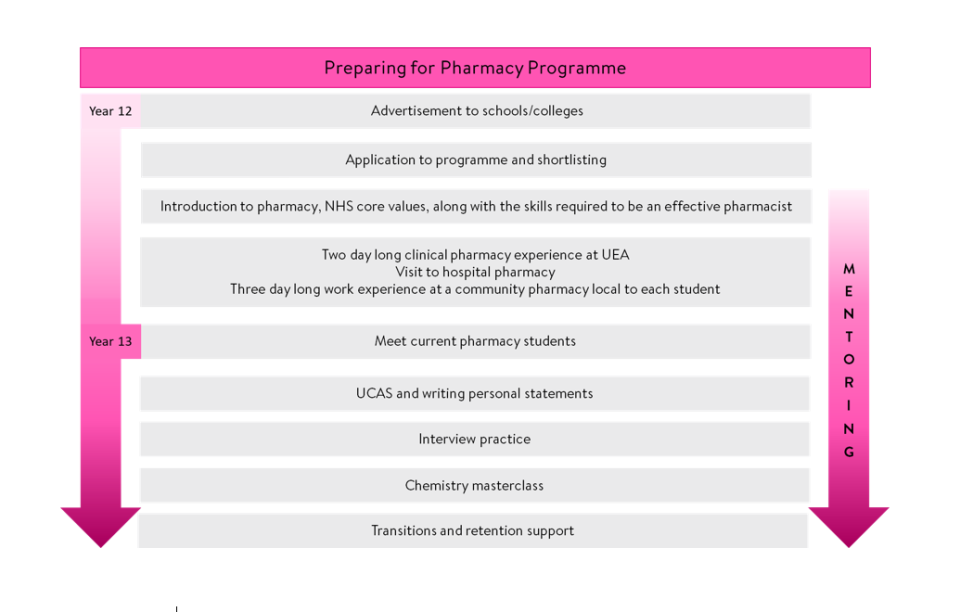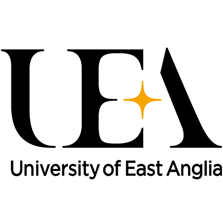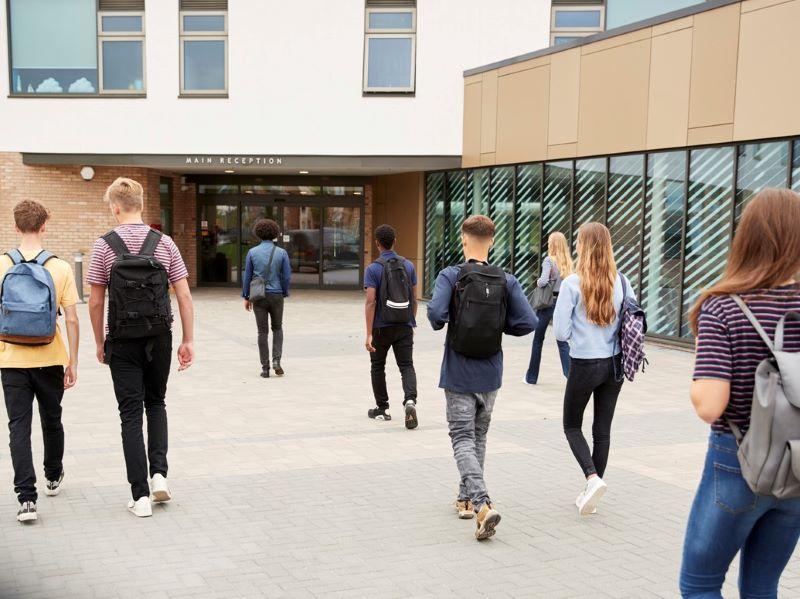
What we learned from a pilot study aimed at getting first-generation students into pharmacy
You may also like
The University of East Anglia (UEA) has launched initiatives aimed at developing early insight into pharmacy as a career for groups under-represented in higher education. Working in partnership with schools, colleges and local pharmacy providers in Norfolk and North Suffolk, we aim to improve access and retention in the pharmacy profession. Here, we outline practical tips following our pilot programme: Preparing for Pharmacy.
Preparing for Pharmacy aims to encourage those curious about pharmacy to explore the subject and career in greater depth and make informed choices about applying for and studying pharmacy. It also provides the opportunity to interact with pharmacy professionals across different settings within the local area. This 18-month-long programme funded through the university’s Access and Participation Plan (APP) offers on- and off-campus activities to support and nurture interest. We summarise the scheme as follows:

Practical tips for other institutions interested in adopting a similar scheme
The pilot two-year programme began in early 2023 and was oversubscribed. In sharing our tips, we aim to support universities to adopt this as a model.
Engage with external collaborators
By working with external collaborators such as NHS Health Education England, integrated care system representatives keen to recruit and retain pharmacists within the region, and pharmacies in our local area that host placements for our current undergraduate pharmacy students, we were able to secure a pharmacy placement local to programme participants. Building good relationships with these collaborators is essential for overcoming barriers to placement provision.
- Resource collection: Supporting first-generation students in higher education
- How can we encourage more prospective first-generation students to apply to university?
- How to help first-generation students navigate the challenges of higher education
Provide an integrated pharmacy placement experience
First-generation students are less likely to have had the opportunity to undergo a pharmacy placement before university, and current financial, recruitment and time pressures within the pharmacy workforce make hosting individual students a challenge. Qualitative research exploring the lived experience of our pharmacy undergraduate students from under-represented backgrounds identified difficulty obtaining pre-university pharmacy placement experience as a barrier to contextualised learning on the course. Studies have shown the importance of contextual learning for linking learning to the real world, therefore gaining placement experience during the formative pre-Ucas stage supports students with foundational knowledge and skills development.
Integrating the placement experience with preparation for the placement is key. Participants on our programme receive a workbook with guided activities to complete during their placement with the pharmacy team, which includes the layout of the pharmacy, the roles of the pharmacy team and information about the journey of a prescription. The day after the placement finishes, students return to UEA to reflect and give feedback to other programme participants on their placement experience, which maximises contextualisation and learning gains.
Embed authentic course and career experiences
Prospective students need authentic experiences to immerse themselves in and learn about the different and ever-expanding roles of a pharmacist. Facilitating meetings between prospective students and pharmacists, tours of pharmacies and clinical simulations enables students to explore the wide-ranging career possibilities and draw on these in university applications and interviews.
Address gaps in the provision of application and interview support
Teachers and career advisers reach out to pharmacy academics and admission teams for advice on how best to support individuals interested in pharmacy with personal statements and interviews. First-generation students have less higher education experience to draw on in the application process, and pharmacy is a niche subject that is less understood compared with subjects like medicine. First-generation students on our programme have valued having generic Ucas support in addition to specific pharmacy application guidance which has helped them reflect on and develop their skill sets, and offer them authentic experiences they can draw on during interviews.
Provide opportunities for peer-to-peer mentoring
Bringing prospective pharmacy students together enables collaboration and creates a shared sense of belonging. Encouraging students on our programme to network with our current pharmacy undergraduate students at our scheduled events and access the scheme’s mentoring programme, where we match participants with trained pharmacy student mentors, helps prospective students’ personal development. When we advertise these schemes, current programme participants in year 13 are available to talk to prospective year 12 participants at their schools/colleges about their experiences and act as positive role models for the next cohort.
Include transitions and retention in your project
Helping students make informed decisions about applying for a pharmacy course and career is just the first step. Programmes should consider how to support the transition and retention of under-represented groups and first-generation students once at university. Participants who apply to UEA after the course and are successful attend a pre-transition on-campus welcome event, are paired with an academic adviser they have worked with on the programme for continuity of support through to graduation, and receive further bespoke academic support in their first year of study. In addition, we hope to be able to offer participants a further placement experience on top of the standard course placement provision in a pharmacy close to where they lived in year 12 during their UEA studies.
Many institutions are working towards their APPs and improving access to under-represented groups, including first-generation students. Through working in close partnership and sharing best practices in this area, universities can collectively support access, transition and retention of these students within pharmacy, wherever they choose to study.
Carl Harrington is lecturer in the school of biological sciences and widening participation academic lead, and Rosemary Norton is associate professor in pharmacology at the school of pharmacy, both at the University of East Anglia.




